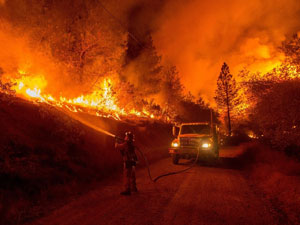
As the year progresses, we are thrilled by the amount of snow we have received. The past two summers have been rife with fires. We couldn’t help but wonder how many of them were caused by Arson – C.R.S. 18-4-101. Fire investigators know the Waldo Canyon fire in 2012 was started by someone, but they don’t know if it was intentional or not. The Black Forest fire is still under investigation, but last November, the fire chief announced they believed the fire was intentionally set. People have intentionally set fires in the past –Colorado’s largest fire (the Hayman fire) was in 2002, and was set by a forestry employee named Terry Barton. Ms. Barton was convicted of Arson and was ordered to pay millions in restitution. Let’s look closer at the statute in order to understand how a person could be charged with Arson:
Arson Charges in Fort Collins and Larimer County
A person will be charged with Arson if they “knowingly” or “recklessly” start a fire which damages (or threatens to damage) property (such as a building or land). A person will be charged with either a felony or a misdemeanor, depending on the type of property which was burned (read our in-depth description of Arson charges in Larimer and Boulder County). The difficult thing with fires and Arson charges is that fire is an unpredictable force. Starting a fire which results in a misdemeanor offense could spread and burn a building – which is a felony. For example, you could be burning leaves in your backyard in Fort Collins, and the wind could pick up and spread the fire, endangering or burning other people’s property. Or, your campground fire could get out of hand and destroy a forest (and the homes in the forest). You can be charged with Arson for “recklessly” starting a fire, which is much more subjective than knowingly starting a fire with the intent to cause damage.
[pullquote align=”center” textalign=”center” width=”70%”]If your campfire gets out of control, you could face millions in restitution for one mistake. [/pullquote]Arson Conviction and Restitution
When a person is convicted of Arson, they will be required to pay restitution in Loveland, Estes Park, and Johnstown. This amount can be millions of dollars. Judges are usually liberal when they order restitution for damages caused by fire. If your campfire gets out of control and burns down homes, you could be facing millions of dollars in restitution for one mistake. Even if your insurance covers the damage (such as in our leaf-burning example), you could still be required to pay restitution.
